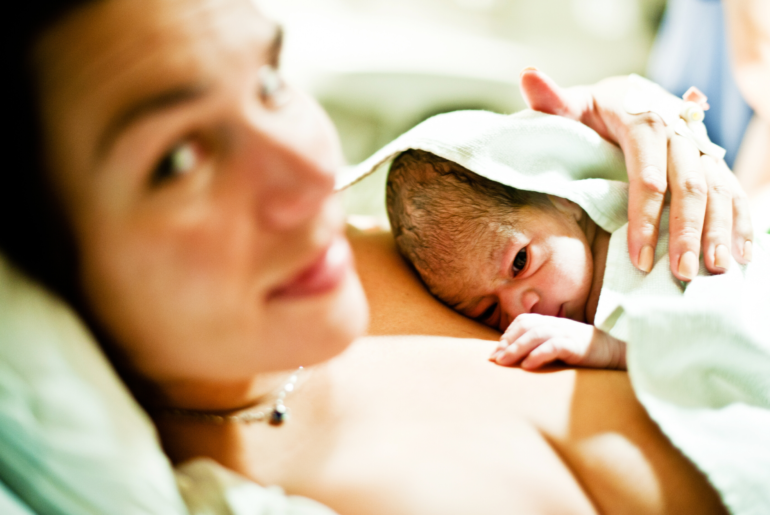It turns out that so-called “baby-friendly” hospitals may not be all that great for babies or their mothers. The Baby-Friendly hospital designation was established to improve breastfeeding rates, but a recent study in The Journal of Pediatrics shows that in the U.S., Baby-Friendly hospital policies had zero impact on whether mothers ultimately found success with breastfeeding. Babies born in Baby-Friendly hospitals also had greater incidence of newborn dehydration and jaundice.
The Baby-Friendly Hospital Initiative (BFHI), created by the World Health Organization (WHO) and UNICEF in 1991, aims to promote breastfeeding through a set of 10 rules, including having the baby sleep in the same room as the mother around the clock, helping moms initiate breastfeeding one hour after the birth, not giving babies pacifiers, and not providing formula unless absolutely necessary. Over 500 hospitals in the U.S. are currently deemed Baby-Friendly.
These well-intentioned rules could cause harm.
Many experts believe that the BFHI rules actually increase stress for mothers. Not being able to send a newborn to the hospital nursery, even for a sleeping break, ramps up the demand on exhausted new parents. “Sleep is essential for psychological wellbeing, including the prevention and treatment of perinatal mood and anxiety disorders (PMADS),” reproductive psychiatrist Alexandra Sacks, who hosts the podcast Motherhood Sessions, pointed out to Romper.
In fact, the practice of keeping the baby exclusively in the mother’s hospital room rather than allowing periodic visits to the nursery was also linked to “near fatal or fatal events related to sleep, suffocation, and falls from adult hospital beds” in a 2016 Pediatrics report.
And being told to breastfeed exclusively no matter what creates unrealistic expectations for a lot of new moms. A 2017 study showed that providing some formula to newborns when mothers are having trouble breastfeeding (or simply don’t have enough milk yet) does no harm to babies in the long run and can take the pressure off of overwhelmed moms. But the way BFHI is implemented in many hospitals doesn’t allow for that kind of flexibility.
Simple changes could help.
Dr. Sacks thinks the approach should be much more holistic: “If a mother finds breastfeeding to be stressful and not the right choice for her, then choosing to pump or use formula may be better for her psychological wellbeing and improve her bonding with her baby, which benefits the health of them both.”
Pediatrician Alison Escalante agrees, and says that the strict Baby-Friendly rules promote an unhealthy brand of “perfectionist parenting.” As she wrote in Psychology Today, “The push for ‘exclusive’ breastfeeding takes a profound emotional toll because it sets the bar too high. Mothers cry in my office almost daily under the pressure. In my clinical observation, this pressure contributes to postpartum depression.”
The study results don’t mean that the Baby-Friendly rules should all be discarded — another study from 2018 showed that hospital-promoted breastfeeding intervention and skin-to-skin care were associated with fewer newborn deaths in the first six days after birth. The breastfeeding interventions may simply need to be implemented with more support and in a more holistic fashion. The researchers suggest that other state and local initiatives to promote and support breastfeeding, often used in conjunction with the BFHI recommendations, may be more effective in actually increasing breastfeeding rates.







